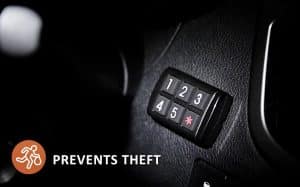Youth crime is distressing for owners of vehicles. Why?
In recent times, Victoria has witnessed a distressing pattern: thrill-seeking for social media recognition has triggered a significant surge in auto thefts among the younger demographic.
This development has not merely become a wake-up call for law enforcement bodies. Still, it has ignited a broader debate on the root causes fueling this upswing in illicit activities.
As the statistics reveal, a small group of young offenders is responsible for a significant portion of these thefts, highlighting the urgent need for targeted interventions and community support. Understanding the motivations behind this behaviour is crucial for developing effective strategies to combat the rising tide of vehicle thefts and to guide youth towards more positive and constructive pursuits.
One significant factor contributing to this trend is the pervasive influence of social media, where young people often seek validation through likes and shares. Platforms that showcase reckless behaviour, such as joyriding, can create a dangerous allure, encouraging impressionable youth to engage in similar activities for online notoriety. This digital culture not only normalises such activities but also amplifies the associated thrill, making it imperative for parents, educators, and community leaders to engage in open dialogues with young people about the potential consequences of their online choices. By fostering critical thinking around social media consumption, we can help youth recognise the difference between virtual fame and real-life repercussions, ultimately steering them away from criminal activities.
The alarming trend has raised concerns among law enforcement and community leaders, prompting calls for increased preventative measures and intervention programs aimed at young offenders. Experts suggest that the rise in joyriding reflects the thrill-seeking behaviour typical of adolescence and a symptom of deeper social issues, including lack of supervision, economic hardship, and the influence of social media platforms that glorify reckless behaviour. In response, police collaborate with schools and community organisations to organise campaigns highlighting car theft’s consequences and promoting positive alternatives for youth engagement.
Additionally, community outreach initiatives are designed to foster stronger relationships between law enforcement and local youth, creating a supportive environment where young people feel valued and understood. These programs will include mentorship opportunities, recreational activities, and workshops focusing on life skills and decision-making. By addressing the root causes of car theft and providing constructive outlets for energy and creativity, authorities hope to deter young individuals from engaging in criminal behaviour and encourage them to pursue more positive paths.
In addition to these community-focused efforts, it is essential to leverage technology as a tool for prevention—innovative solutions such as GPS tracking systems and advanced car immobilisers can be effective deterrents against theft. Owners can protect their property by equipping vehicles with these technologies and contribute to a broader strategy to reduce car theft rates. Furthermore, educational campaigns informing drivers about these technologies’ benefits can help shift their perception of vehicle ownership from a target for joyriding to a responsibility that requires care and respect. This proactive approach and community engagement can create a multifaceted strategy to combat youth crime and foster a culture of accountability among young drivers.
The Queensland Government and QPS are to be lauded for their proactive efforts in vehicle theft prevention, mainly through the effective implementation of the car immobiliser trial. This ongoing trial, already in its early phase, has garnered substantial data that evidences its success. This triumph is poised to expand to other LGAs across Queensland. A cost-effective strategy to mitigate vehicle theft risks has been the deployment of keypad engine immobilisers, validated through numerous global trials and now proving their worth in Australia.
Although an Election is looming in Queensland, the LNP has released advertising focussed on youth crime tonight https://www.facebook.com/LNPQLD/videos/1848748515651958, and the promise to legislate “adult crime, adult time” laws to be passed by Parliament this year if it is elected on 26 October,
The ad was released with LNP leader David Crisafulli confirming Russell Field will be the LNP candidate for Capalaba against Labor’s Don Brown. Mr Field has been an outspoken advocate for crime victims since his son, Matthew, was struck and killed alongside his pregnant fiancée, Kate Leadbetter, by a teenager in a stolen car in Alexandra Hills, east of Brisbane, on Australia Day in 2021.
Labor weakened youth justice laws | Labor weakened the youth justice laws in 2016, and now they have no plan to fix it. | By LNP – Liberal National Party Facebook
Labor weakened the youth justice laws in 2016, and they have yet to make a plan to fix it.




